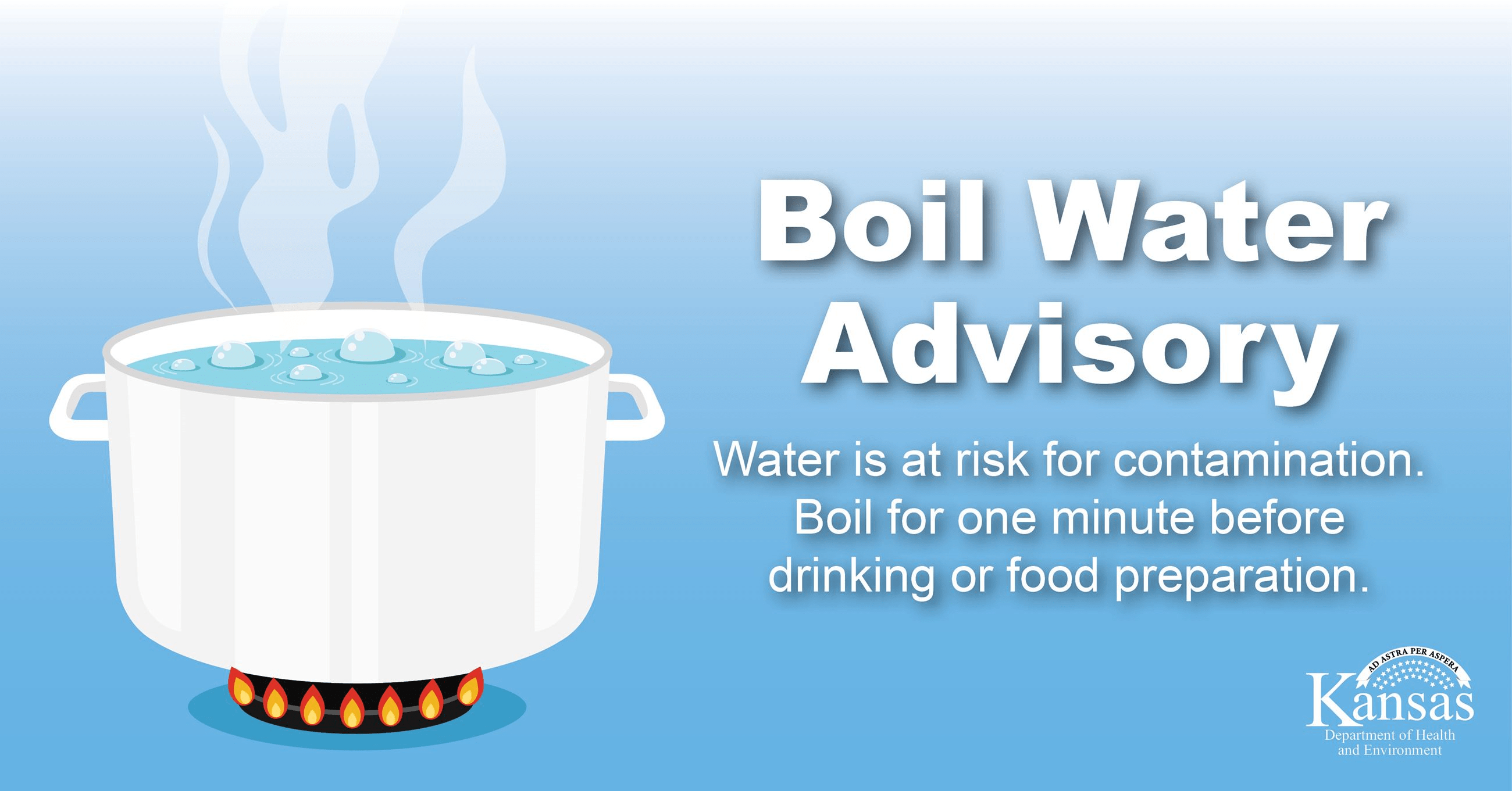Important Notice: Boil Water Advisory For Anderson County RWD #4 From KDHE

Table of Contents
<meta name="description" content="Anderson County RWD #4 is under a boil water advisory due to a water main break. Learn about affected areas, precautions, and when the advisory will be lifted from this KDHE notice.">
<p>A boil water advisory has been issued by the Kansas Department of Health and Environment (KDHE) for residents served by Anderson County Rural Water District #4. This urgent notice is critical for protecting public health. This advisory is in effect due to a significant water main break resulting in a loss of pressure within the water distribution system. Following the instructions below is crucial to ensure safe water consumption and prevent potential waterborne illnesses.</p>
<h2>Affected Areas and Duration of the Boil Water Advisory</h2>
<p>This boil water advisory affects a significant portion of Anderson County RWD #4. The advisory impacts residents and businesses within the following areas:</p>
<ul> <li>All residents on Main Street from Elm Street to Oak Street.</li> <li>Residents in the Oakwood Estates subdivision.</li> <li>Businesses located along Highway 16, between mile markers 25 and 28.</li> <li>Anderson County Community Center.</li> </ul>
<p>The boil water advisory went into effect at 6:00 PM on October 26, 2023. The anticipated end date is currently set for 6:00 PM on October 28, 2023, but this is subject to change depending on the results of water quality testing. Updates will be provided via the Anderson County RWD #4 website ([insert website address here]), the county's Facebook page ([insert Facebook page link here]), and local news outlets.</p>
<h2>Why is a Boil Water Advisory Necessary?</h2>
<p>The boil water advisory is necessary due to the water main break, which caused a significant drop in water pressure within the distribution system. Low water pressure increases the risk of contamination from harmful bacteria, viruses, and parasites entering the water supply. Consuming contaminated water can lead to serious health issues.</p>
<ul> <li>Potential contaminants include E. coli and other harmful bacteria.</li> <li>Health risks associated with consuming contaminated water include gastrointestinal illnesses such as diarrhea, vomiting, and nausea. In severe cases, more serious complications can occur.</li> <li>This advisory is a preventative measure to protect public health and avoid potential outbreaks of waterborne diseases.</li> </ul>
<h2>How to Safely Boil Water</h2>
<p>Boiling water is the most effective way to kill harmful bacteria and other microorganisms. To ensure your water is safe for consumption, follow these steps:</p>
<ul> <li>Bring water to a rolling boil for at least one minute. Ensure the water is vigorously boiling.</li> <li>Let the water cool completely before drinking or using it for food preparation. You can speed up this process by pouring the boiled water into a clean container and placing it in the refrigerator.</li> <li>Store boiled water in a clean, covered container in the refrigerator for up to 24 hours. After 24 hours, reboil the water before using it.</li> <li>If boiling water is not feasible, use bottled water for drinking, cooking, and preparing baby formula.</li> </ul>
<h2>What to Do During the Boil Water Advisory</h2>
<p>During the boil water advisory, it's crucial to take the following precautions to ensure your safety and prevent potential health risks:</p>
<ul> <li>Use only boiled water for drinking, making ice, preparing food, brushing teeth, and preparing baby formula.</li> <li>Use boiled water for handwashing, particularly before eating or preparing food.</li> <li>Avoid using ice made from tap water before the advisory is lifted.</li> <li>If possible, avoid washing dishes with tap water. Use a dishwasher if available, or wash dishes with boiled water and detergent.</li> </ul>
<h2>When Will the Advisory Be Lifted?</h2>
<p>The boil water advisory will be lifted once water quality testing confirms that the water is safe for consumption. The Anderson County RWD #4 will be collecting and testing water samples at multiple locations throughout the affected area. The results are expected within [Time Frame].</p>
<ul> <li>Water samples will be tested for the presence of harmful bacteria and other contaminants.</li> <li>Residents will be notified via the Anderson County RWD #4 website ([insert website address here]), Facebook page ([insert Facebook page link here]), local news outlets, and potentially a reverse 911 system when the advisory is lifted.</li> <li>Regularly check the Anderson County RWD #4 website ([insert website address here]) for updates and the latest information.</li> </ul>
<h2>Conclusion</h2>
<p>This boil water advisory from the KDHE for Anderson County RWD #4 is crucial to protect public health. Following these guidelines will help minimize the risk of waterborne illnesses. Remember to boil water before use, and stay updated on the advisory’s status. This is a serious matter, and your cooperation is essential.</p>
<p>For the latest updates on the Anderson County RWD #4 boil water advisory and to ensure your safety, regularly check the [website address] and follow the KDHE guidelines. Stay informed and prioritize safe water practices during this advisory. Remember to share this crucial information with your neighbors and community members. Your vigilance will help protect the entire community.</p>

Featured Posts
-
 Padres Home Winning Streak On The Line Against Rockies
May 16, 2025
Padres Home Winning Streak On The Line Against Rockies
May 16, 2025 -
 Colorado Rapids Win Calvin Harris Cole Bassett Goals Steffens Stellar Performance
May 16, 2025
Colorado Rapids Win Calvin Harris Cole Bassett Goals Steffens Stellar Performance
May 16, 2025 -
 New Tender For La Liga Broadcasting Rights In The Uk And Ireland
May 16, 2025
New Tender For La Liga Broadcasting Rights In The Uk And Ireland
May 16, 2025 -
 3 Kissfms Vont Weekend April 4 6 2025 Photo Album
May 16, 2025
3 Kissfms Vont Weekend April 4 6 2025 Photo Album
May 16, 2025 -
 The Countrys Top New Business Locations A Geographic Analysis
May 16, 2025
The Countrys Top New Business Locations A Geographic Analysis
May 16, 2025
